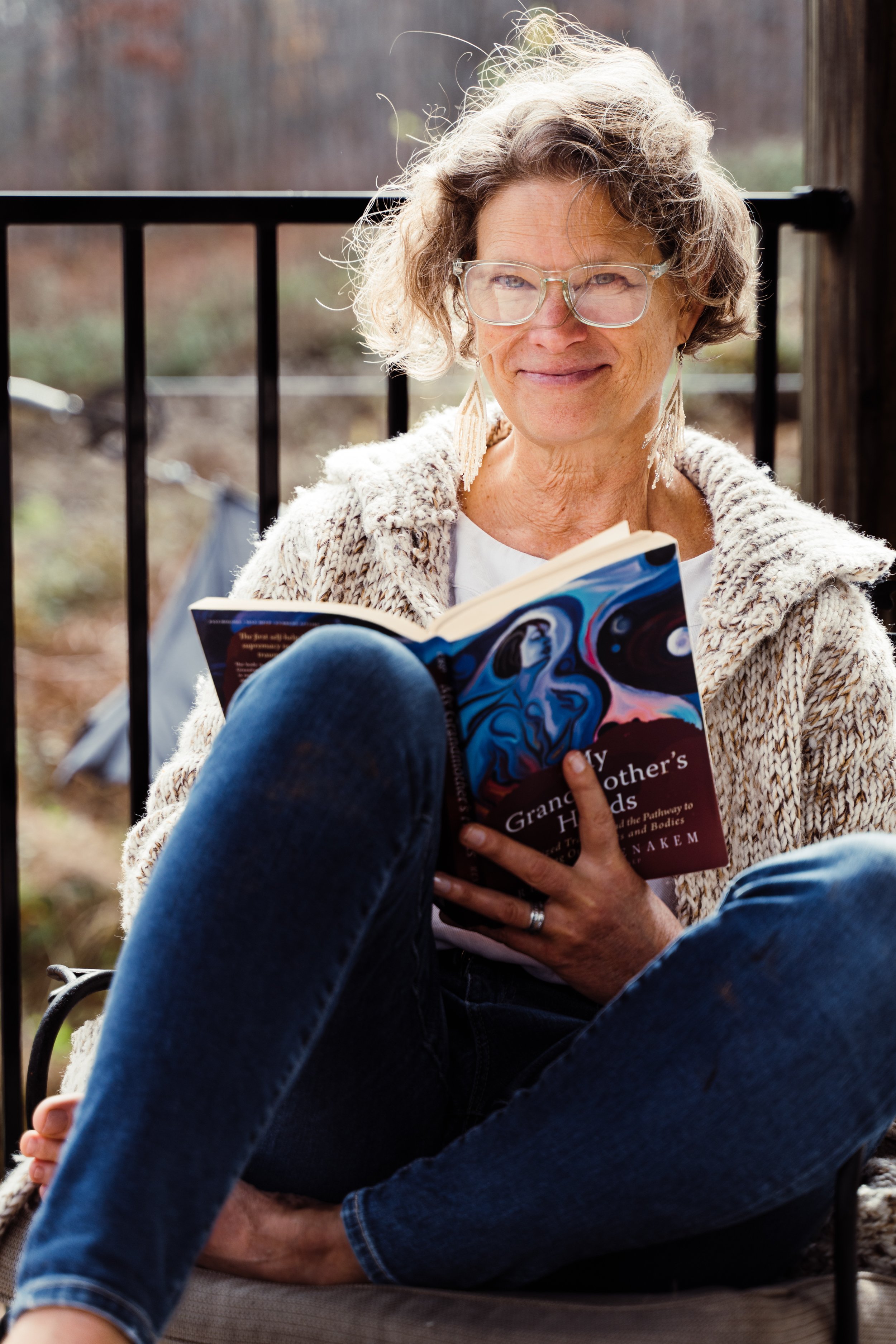The Good Girl part of me wishes I could tell you that I’ve been doing anti-racism and social justice work my whole life.
I haven’t.
Based on my education and experience, I thought of racism and white supremacy as historical, part of the past. As far as my own behavior goes, I figured if I wasn’t doing anything overtly harmful or racist and I had some Black friends and colleagues then I wasn’t racist.
Sadly, it took the murders of Ahmaud Arbery and George Floyd in 2020 to wake me up to massive systemic inequities and persistent white supremacy. These travesties opened my eyes and got me doing the work.
I began by reading My Grandmother’s Hands by Resmaa Menakem with a community of folks on the same path. Since then, I’ve been reading, listening and processing in an effort to unlearn white supremacy.
Recently, I read Regina Jackson and Saira Rao’s White Women: Everything You Already Know About Your Own Racism and How To Do Better.
White Women pulls no punches and speaks directly to the racism in white women – all of us. Not just torch-carrying Proud Boys. Not just skin headed Neo-Nazis. Not just conservative Republicans. All of us. Even NPR-listening progressive Democrats with Black Lives Matter signs in the front yard. All of us.
Me.
I could only read small sections of the book at a time. I felt defensive, confused, fearful of doing (or thinking or saying) something wrong or causing more harm. I felt called out, but for what I wasn’t entirely sure.
It will take time for me to process and understand this book. It’s going to take lots of unpacking and unlearning with other white women. I’m in no position to offer any insights now — or probably ever. But one thing the authors did has given me a toe-hold into how to approach that unpacking: the parallel between racism and sexism.
Reading and re-reading, unpacking, unlearning. (Photo: Rebecca George Photography)
I will never know what it feels like to suffer under deeply entrenched American racism, but I do know what it feels like to deal with age-old patriarchal sexism – at work, in sport, in relationships, in the general world. It’s exhausting and frustrating. Seeing the cancellation of female actors over 40, the gaping disparities in women’s athletics, the testimony of Christine Blasey Ford, fills me with a rage that I don’t know what to do with.
Most men in my life don’t talk or act in sexist ways but I find it hard to talk to them about the inequities of being a woman in this culture. Men in my life often get defensive, confused, or fearful of doing (or thinking or saying) something wrong when talking about cultural oppression of women. And honestly, I didn’t know what I wanted from them.
Jackson and Rao draw connections between my experience of sexism and misogyny and their experiences of racism and white supremacy. Even in the context of the painful and difficult work of anti-racism, this parallel helps me find a way forward.
I see that what I want from men is simply for them to look at my lived experience tenderly, with curiosity and to be willing to use their social power to speak up. I want them to care enough to listen to women’s stories and their emotional toll, for them to believe me and for my experience to matter, for them to see both the benefits and harms they get from the patriarchy. And I want them to stand with me and speak up about what they know is sexist bullsh**t.
Of course different Black folks and POC may want different things from white people. But for now, as I continue to unlearn my own racism, I want to approach it with care and curiosity. Care and curiosity about experiences I haven’t lived, care and curiosity about how I benefit from the systems that are causing detrimental harm, care and curiosity about how I’m harmed by racism, too, and a willingness to both speak up and be corrected when I inevitably mess up.
Adding something familiar to an unfamiliar scenario can build connection, understanding and compassion. If you find yourself baffled by another’s experience, can you find your own parallel? Or can you relax enough to care and get curious.







